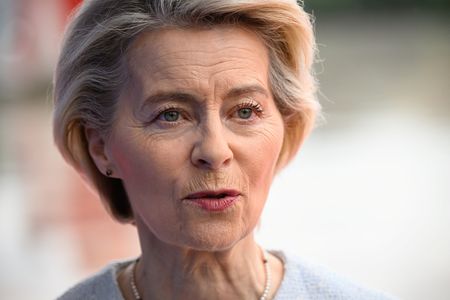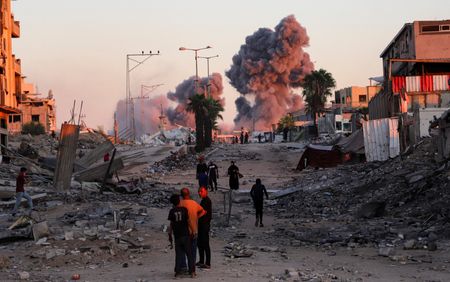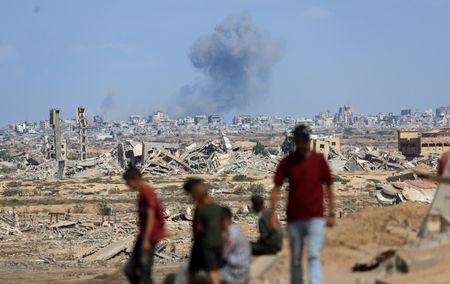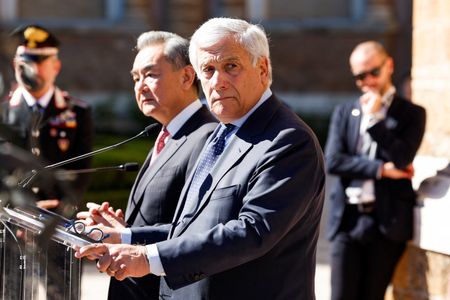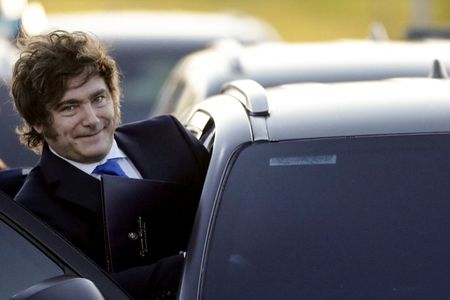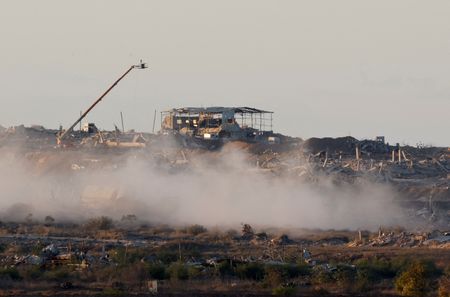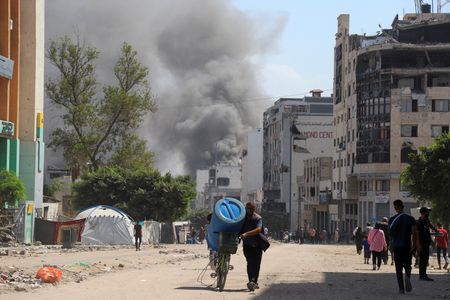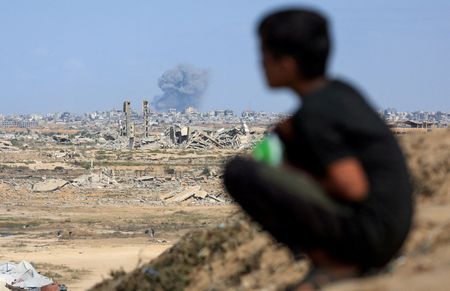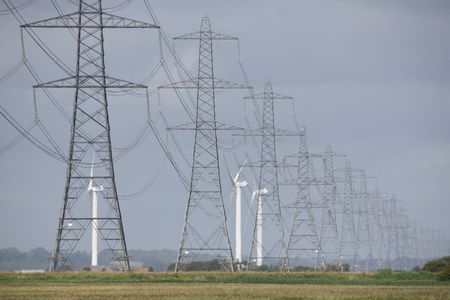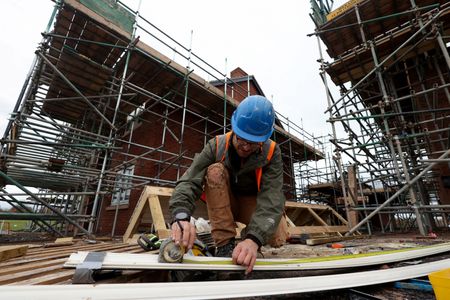By Andrew Gray and Fatos Bytyci
TIRANA (Reuters) -The European Union is working on a new package of sanctions to increase pressure on Russian President Vladimir Putin over the war in Ukraine, EU Commission President Ursula von der Leyen said on Friday as leaders from across Europe met in Albania.
The European Political Community Summit, which includes non-EU countries, convened in the Albanian capital Tirana as Russian and Ukrainian negotiators met in Istanbul for their first direct peace talks in more than three years, under pressure from U.S. President Donald Trump.
The EU, sidelined amid U.S. efforts to end the war, has already adopted 17 sanctions packages against Russia – the latest one this week – and diplomats say it is increasingly difficult to get the necessary unanimity among the bloc’s 27 members to pass new measures.
“He does not want peace, so we have to increase the pressure, and this is why we are working on a new package of sanctions,” von der Leyen said, referring to Putin.
“This package will include for example sanctions on Nord Stream 1 and Nord Stream 2. It will include working on listing more vessels of the Russian shadow fleet and also lowering the oil price cap, and will include more sanctions on the financial sector in Russia.”
Nord Stream 1 and Nord Stream 2, each consisting of two pipes, were built by Russia’s state-controlled Gazprom to pump natural gas to Germany under the Baltic Sea. They were ruptured by a series of blasts in 2022.
Officials and diplomats have said that the major new sanctions European leaders have threatened over the past days would need U.S. support to succeed.
Speaking to other European leaders in Tirana, Ukrainian President Volodymyr Zelenskiy said Ukraine’s first priority was to secure an unconditional ceasefire to create a basis for future talks on a peace deal.
‘UNACCEPTABLE’
On Sunday, Putin proposed direct talks with Ukraine in Turkey, but he spurned a challenge from Zelenskiy to meet in person, instead sending a team of mid-ranking officials to the talks.
The Istanbul talks ended after less than two hours, with no apparent sign of progress so far in narrowing the gap between the sides, and a Ukrainian source called Moscow’s demands “non-starters”.
NATO Secretary General Mark Rutte had said earlier in the day that Putin had “made a mistake by sending a low-level delegation” to Istanbul.
“What we saw yesterday and overnight is yet more evidence that Putin is not serious about peace,” British Prime Minister Keir Starmer said.
Starmer and the leaders of France, Germany and Poland agreed with Zelenskiy in Tirana that Russia’s position in peace talks was “clearly unacceptable” and also consulted with Trump, Starmer said later in the day, adding that they were all closely coordinating their responses.
Germany’s new chancellor, Friedrich Merz, said that Europe must increase its defence capacities, adding that the region needs to work with the United States to end war in Ukraine.
“We have to undertake all efforts to keep the Americans on our side,” Merz said. “We cannot substitute or replace what the Americans still do for us on our continent.”
In an apparent bid by the summit host, Albanian Prime Minister Edi Rama, for a bit of a lighter mood, at the start of the meeting the leaders were shown a cheeky video portraying them all as babies saying “Welcome to Albania”.
(Reporting by Andrew Gray and Fatos Bytyci in TiranaAdditional reporting by Benoit Van Overstraeten, Ingrid Melander, Bart Meijer, William James and Julia PayneWriting by Ingrid Melander and Edward McAllisterEditing by Alex Richardson, Frances Kerry, William Maclean)

